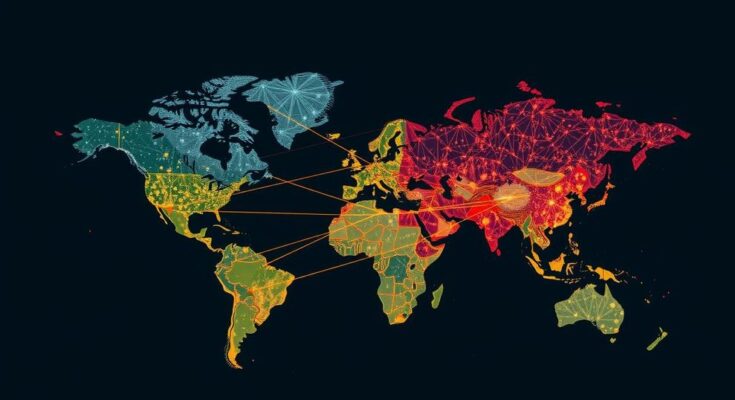The article discusses the troubling connection between climate change and the rise of authoritarianism, highlighting how leaders like Rodrigo Duterte have exploited natural disasters to consolidate power. It examines research demonstrating that climate-induced crises lead to a decline in democratic governance and an increase in authoritarian tendencies, urging the need for proactive democratic responses to counter these trends.
The link between climate change and the rise of authoritarian regimes has garnered increasing attention in recent years. A striking example is the devastation wrought by Super Typhoon Yolanda in 2013, which left a significant mark on the political landscape of the Philippines. Rodrigo Duterte, then the mayor of Davao City, leveraged this natural disaster to bolster his political career, famously advocating for violent measures against looters and later winning the presidency by capitalizing on the public’s desperation post-typhoon. His administration epitomized a trend where leaders exploit crises to undermine democratic norms and consolidate power, often through means that favor authoritarianism. Globally, this pattern has been mirrored in various nations, with strongman politicians increasingly gaining traction amid natural disasters and environmental crises. Such leaders often scapegoat marginalized groups and dismiss democratic institutions, as seen in India under Prime Minister Narendra Modi, Brazil under former President Jair Bolsonaro, and during Donald Trump’s administration in the United States. Recent research indicates a causal relationship between climate-induced disasters and a decline in democratic governance. A study focusing on island nations demonstrated that the occurrence of severe storms reduced democracy scores significantly. Furthermore, psychological studies suggest that exposure to climate change threats can exacerbate xenophobic attitudes and heighten conformity to authoritarian norms within populations. It is imperative to understand the sociopolitical dynamics that allow these authoritarian figures to thrive during times of ecological peril. Experts posit that an increasing sense of insecurity and fear stemming from climate change contributes to a public desire for leaders who promise quick solutions to complex issues, thus enabling the rise of authoritarianism. There is also concern that non-democratic regimes could respond more effectively to climate challenges due to their lack of constraints imposed by human rights or democratic oversight.
The relationship between climate change and political dynamics has become a critical area of study, especially in light of the increasing frequency and severity of natural disasters. Political scientists have observed that crises, like those caused by climate change, often lead to a consolidation of power by autocratic leaders, who can exploit societal vulnerabilities to undermine democratic processes. This trend is reflected in the rise of various leaders who have embraced authoritarian practices in the wake of environmental catastrophes, using these opportunities to advance their political agendas.
In summary, the intersection of climate change and authoritarianism presents a significant threat to democratic institutions worldwide. The exploitation of crises by strongman politicians underscores the urgent need for robust democratic responses to environmental challenges. As the climate crisis intensifies, it is essential to foster a political landscape that prioritizes collective action and resilience against authoritarian tendencies, encouraging democratic engagement rather than fear-driven votes for autocrats. The future remains malleable, contingent upon the actions of individuals and societies in facing these challenges together.
Original Source: www.fastcompany.com




